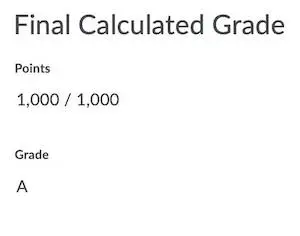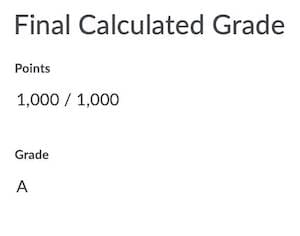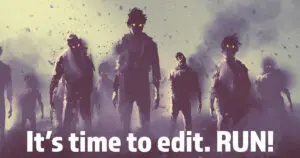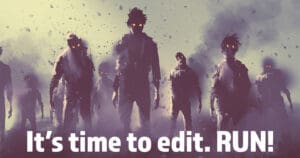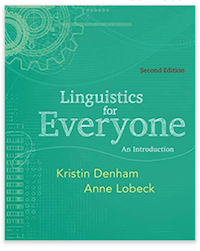Estimated reading time: 5 minutes
I'm the kind of person who listens to podcasts about language, like Word Matters from Merriam-Webster, so this class should have been right up my alley. And it was! Except when it wasn't. Hold on, I'll explain.
As I write this in April 2021, I'm finding it both difficult and illuminating to look back on courses I took last fall. I've gone out of my way to avoid talking about the COVID-19 pandemic, instead opting to focus on, well, anything else. Here, toward the end of the pandemic, I've begun to understand what I was feeling last fall—I was languishing. I wasn't as interested in my studies as I had been, I stopped using my planner and to-do lists, and I started pushing all the work into the weekends. I took few notes and have only my assignments to remind myself what happened. Bad habits developed. I still completed the work (and you'll see shortly how successful I was in spite of everything), but I felt like I was going through the motions.
This recap suffers as a result, and I apologize in advance.
About ENG-350
Shortly before writing this recap, I received an email from an SNHU student who wanted to know if the course description offered by the school matched the actual content of the course. I replied that, unlike a few other descriptions I've seen, the school does a good job of telling students what to expect. ENG-350 is a detailed look at how words are formed, how we use them, and where they come from. I liked it well enough but found it to be rather technical at times in ways that I don’t think really benefit me as a writer. Like, I don’t need to know how the International Phonetic Alphabet works, but other students will surely find it useful.
The discussions play an unusually large role in ENG-350, accounting for a total of 360 points. There are six of them, and students would do well to take them seriously. The rest of the grade is split between the two final projects, their milestones, and a single journal assignment.
My instructor was Dr. Britta McCreary, who was helpful and interested in the success of her students. We exchanged a couple of messages and I found her to be engaging and deeply invested in the material.
Course Materials
Linguistics for Everyone: An Introduction by Kristin Denham and Anne Lobeck, second edition, 2013.
I wish I could tell you anything about this book, but I can't. I rented it through the school bookstore and the license has since expired—it must have been a six-month rental period. There's a Look Inside option for the book on Amazon if you'd like to get a sense of it. Given that this course wasn't difficult, I'm sure I found the book useful at the time.
The Final Project
As with some other courses, there are two final projects. The second is of little consequence—a reflection on the process and one's own use of language. I suspect most students can knock that out in a day with little aid required. The first project, the main project, is heavier.
“You will conduct an analysis and critique of two different written or spoken works, contrasting their use of language and how it informs the writing and message of the piece[s].”
Given my state of mind, I was more than happy to take shortcuts where I could find them. Back in HUM-200 (September/October 2019—a lifetime ago), I created a presentation comparing Nathaniel Hawthorne's “Young Goodman Brown” to Flannery O'Connor's “A Good Man is Hard to Find.” When I saw the suggested reading list for this course and saw that it included works from both Hawthorne and O'Connor, I knew I had to choose them. I knew I'd be able to use my familiarity with both authors to my advantage.
The thesis: The House of the Seven Gables and Wise Blood demonstrate changes to the English language over time and distance through their phonology, dialect, and linguistic style.
Advice for Students Registering for ENG-350 at SNHU
- The journal assignment in week one prompts you to ask questions about the course, assignment expectations, and concerns you might have. Do not skimp. I had three questions:
- The sample projects seem to be wholly new, not built from milestones. Is the final project a combination of the milestones? [Yes.]
- The sample headings do not seem to match proper MLA formatting and do not refer to anything in the rubric. Are we free to build the paper however we like, as long as we address the critical elements? [Yes.]
- I do not see a clear thesis in either of the sample papers. Should we be making an argument, or are we simply analyzing and reporting? [A thesis is required.]
- Phonetizer.com. /jə ˈwelkəm/
- The grades are extraordinarily concentrated into a handful of assignments. Pay attention to the discussions. The main final project and its three milestones account for another 510(!) points. The second final project is worth just 100 points, and the week one journal is 30 points. Set your priorities accordingly.
In the End
I said last June that LIT-200 would be the last time I hit a perfect grade.
I was wrong.
